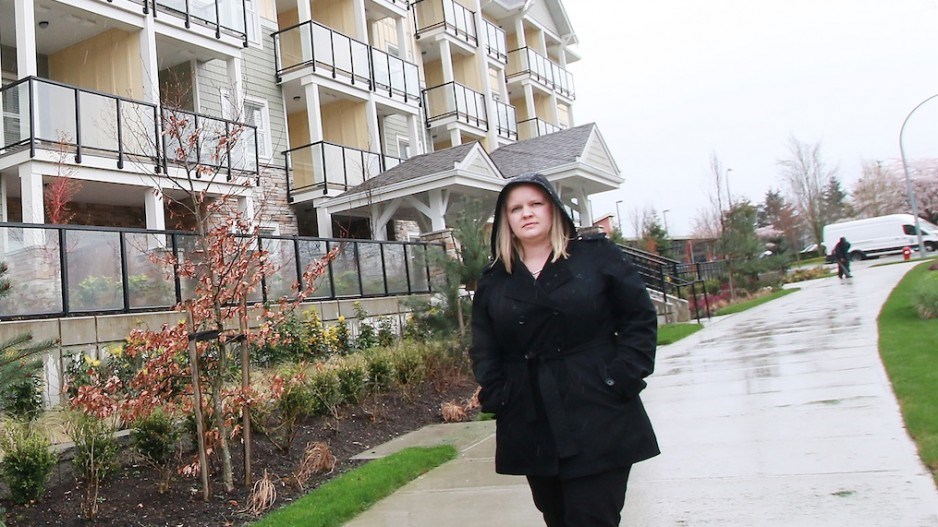A chartered professional accountant who is cited as having played a key role in a high-profile alleged illegal real estate marketing scheme will face a disciplinary hearing next month by the Mutual Fund Dealers Association of Canada.
Vasant Pragjibhai Patel had his mutual fund licence terminated by WFG Securities Inc. in January 2018, but the industry’s regulator is planning to explore allegations he violated policies by moonlighting for a condo investment in Langley, B.C., led by infamous developer Mark Chandler, who is now in a U.S. jail awaiting criminal fraud charges.
After becoming a registered dealer in April 2016, Patel is alleged to have not told his employer about recommending real estate investments to prospective purchasers of the Murrayville House condo development. In 2015, Chandler retained Patel for accounting services. It’s alleged by the MFDA that Patel never informed WFG of his involvement with Chandler and Chandler’s group of companies known as Newmark Group.
The MFDA asserts Patel obtained $425,000 in commission for the unreported financial transactions related to real estate investment recommendations that resulted in $4.3 million going to Chandler, who is alleged to have pre-sold units multiple times and not put deposits in a trust. Subsequently, a receiver was appointed to the development, and it was determined Chandler had secured 149 purchasers for 91 units and was unable to account for $12.2 million paid to his development company, according to MFDA’s hearing notice. Chandler and his company 0981478 Ltd. still face a notice of hearing from the Office of the Superintendent of Real Estate (OSRE), although he is now in a California jail after being extradited last year on fraud charges related to other real estate transactions.
The MFDA alleges Patel lied to its investigators about what he knew about Chandler’s intentions for the money, such as contradicting statements he made to the OSRE.
In September 2017, the OSRE issued a cease marketing order against Chandler’s company. The order cited Patel as a key player in the marketing scheme.
“Mr. Patel stated he facilitated many of the deals that resulted in the 24 agreements and collected a finder’s fee either directly or through 1074936 B.C. Ltd.,” the OSRE order states, referring to a law firm’s claim that 24 units sold to its clients had actually been double or triple sold.
Patel admitted to the OSRE that he personally purchased one unit for $160,000 but was told by Chandler the market price was $280,000. “Mr. Patel then told others about the development.”
It is not stated who Patel sold Murrayville House to nor what his relationship was to the investors. However, the MFDA claims none of Patel’s investors were clients of WFG Securities. The MFDA noted Patel also worked as an accountant for an excavation company, which was approved work by WFG Securities. Patel was also a licensed insurance agent at the time.
According to databases for the Chartered Professional Accountants and the Insurance Council of B.C. — both self regulating bodies — Patel is presently a standing member of only the former.
CPABC communications manager Vivian Tse acknowledged that the organization is aware of Patel’s MFDA notice of hearing and “will monitor its outcome.”
Like the CPABC, the insurance council did not acknowledge whether Patel’s regulatory proceedings have prompted its own investigation, despite the well-publicized allegations. When asked if former members can face discipline, communications manager Melinda Lau said by email, “The Insurance Council does have the legislated authority to conduct investigations of former licensees and has previously issued discipline orders under those circumstances.”
An OSRE hearing that outlines alleged contraventions of the Real Estate Development Marketing Act by Chandler’s company, remains pending and the allegations contained within the notice remain unproven. No one involved in the Murrayville House condo marketing scheme has been criminally charged in Canada, but Chandler and his companies face several civil proceedings.
Some scorned buyers, whose contracts were nullified, told Business in Vancouver in 2018 that their experience is evidence that the B.C. government needs to step in with strict guidelines for developers conducting pre-sales and to issue fines when developers break rules and sell units multiple times and pocket deposits without putting them in trust.
What exasperated buyer Elyse Vroom, for instance, is that Chandler had been in receivership before yet escaped being banned from developing further.
His Chandler Homer Street Ventures Ltd. spiralled into receivership in early 2008 after the BC Supreme Court, in 2007, separately froze $35 million of Chandler’s assets after investors alleged he misrepresented real estate deals and forged a multimillion-dollar mortgage document.
- With files from Glen Korstrom, Business in Vancouver



